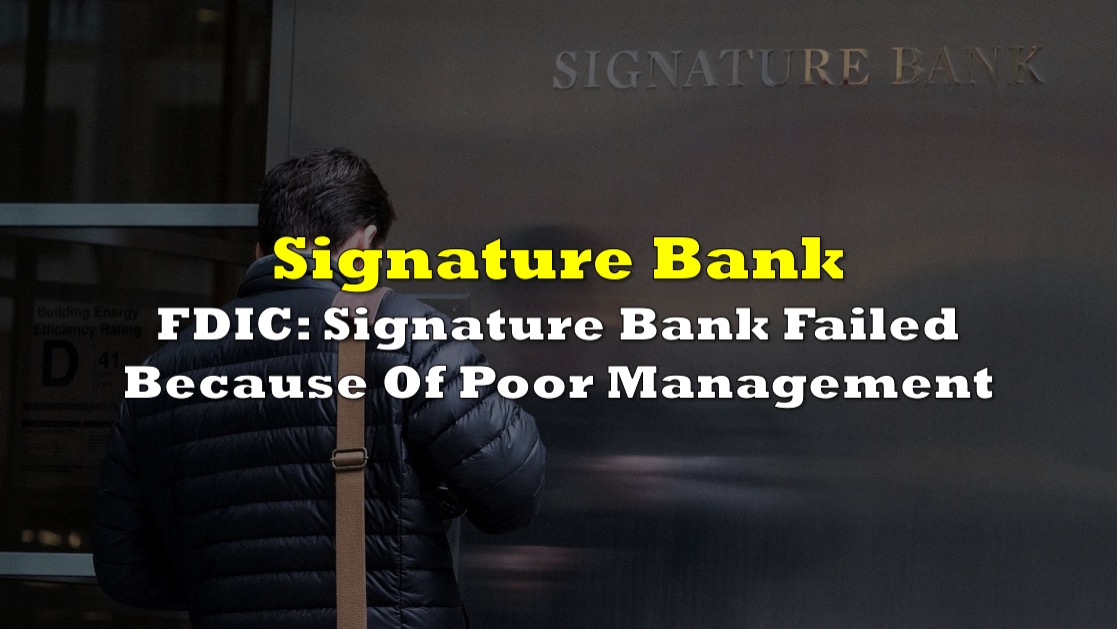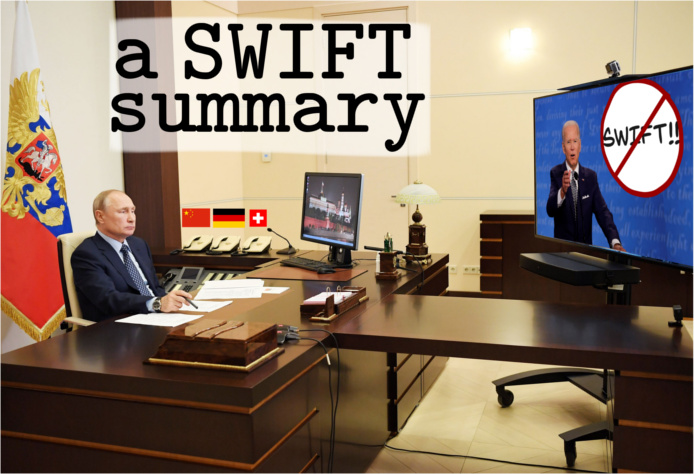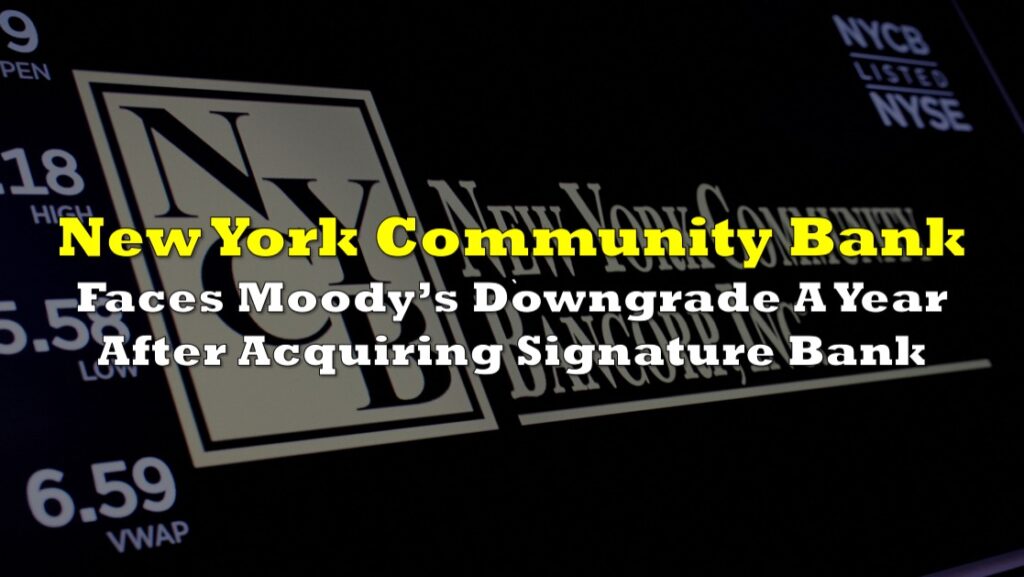Signature Bank failed due to “poor management,” according to a report released Friday by the Federal Deposit Insurance Corporation (FDIC).
The bank’s management “did not always heed FDIC examiner concerns, and was not always responsive or timely in addressing FDIC supervisory recommendations,” according to the report.
According to the FDIC investigation, the run on deposits was sparked by the failure of Silicon Valley Bank (SVB) and the self-liquidation of Silvergate Bank, which occurred just days before Signature Bank was forced to close. The FDIC, however, stated that this was not the core cause of Signature Bank’s difficulties.
The agency added that the bank management, in particular, did not fully appreciate the dangers connected with accepting crypto deposits, which accounted for more than 20% of total deposits.
“When that industry started to turn and interest rates started to rise, those deposits started leaving the bank,” said Marshall Gentry, chief risk officer at the FDIC. “Even though they were crypto cash deposits, it was a traditional kind of bank run.”
🤦♀️ $SBNY
— ⚯ M Cryptadamus ⚯ | @cryptadamist@universeodon.com (@Cryptadamist) May 1, 2023
imagine trying to hand a piece of paper that says "trust me bro" to FDIC and NYDFS in the middle of a crisis. the chutzpah is incredible. $SBNY
(from @bank_reg's blog on the site that shall not be named. cc @Frances_Coppola) pic.twitter.com/5TvO7UAgEm
Signature Bank had $110 billion in assets at the end of 2022, ranking it as the 29th largest bank in the United States. According to FDIC quarterly banking data, the bank was overly reliant on uninsured deposits, which accounted for 90% of total deposits by the end of 2022.
The report comes a month after New York Community Bank (NYSE: NYCB) agreed to buy a large portion of Signature Bank for $2.7 billion in a transaction overseen by the FDIC. Around 40 Signature Bank branches are being renamed Flagstar Bank, a subsidiary of New York Community Bank.
The transaction was to include the purchase of $38.4 billion in Signature Bank assets, which represents slightly more than a third of Signature’s entire assets when the bank failed.
The FDIC then stated that $60 billion in Signature Bank loans will stay in receivership and will be sold off over time. It also estimated that the bank’s bankruptcy will cost the deposit insurance fund $2.5 billion, although that figure might alter as the regulator sells assets.
FDIC acknowledges shortages
On the supervisory front, the FDIC admitted that it fell short of providing adequate and timely reviews to Signature Bank, citing staffing limitations at the agency.
Signature Bank was planned to have its own examination team, which would work through the FDIC’s New York office. However, according to the FDIC, 40% of the regional office’s roles have been vacant or filled by temporary staff since 2020.
“Certain targeted reviews were not completed timely or at all because of resource shortages,” the report said.
5 banks valued in the BILLIONS just 50 days ago have basically vanished but everyone says it’s contained#SilverGate $SI#SiliconValleyBank $SVB#SignatureBank $SBNY #CreditSuisse $CS#FirstRepublicBank $FRC
— Golden Coast (Cassandra) (@GregCrennan) April 28, 2023
“The banks are fine” –@CNBC
“The numbers just don’t add up anymore” pic.twitter.com/OHgbbU7wlv
The FDIC’s analysis follows a Federal Reserve report, which concluded that SVB failed owing to a similar lack of internal risk management. The investigation also stated that Fed supervisors “did not fully appreciate the extent of the vulnerabilities as SVB grew in size and complexity.” Furthermore, when they recognized risks at SVB, they did not work with the bank to remedy the issues in a timely manner, according to the report.
Because it was the primary regulator, the FDIC led the investigation into Signature Bank, a New York state-chartered bank. Because Signature Bank was not a member of the Federal Reserve System, it was not directly regulated or supervised by the Fed, whereas SVB was.
Information for this briefing was found via CNN and the sources mentioned. The author has no securities or affiliations related to this organization. Not a recommendation to buy or sell. Always do additional research and consult a professional before purchasing a security. The author holds no licenses.









